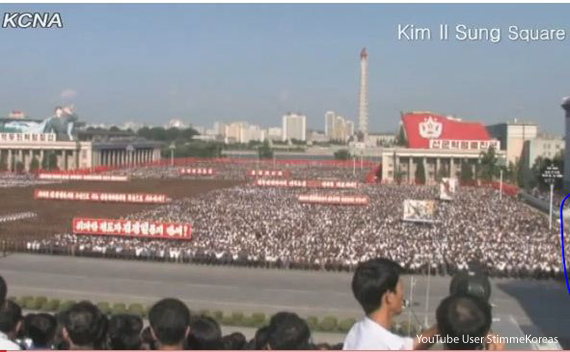The Land of Lousy Options, Indeed.
More on:

Senate Foreign Relations Committee Chairman John Kerry published an opinion column in the Los Angeles Times last week urging the Obama administration to engage in direct diplomacy with North Korea by resuming Korean POW/MIA recovery operations active in the 1990s that had been suspended early in the Bush administration and by authorizing humanitarian aid in response to North Korea’s appeals. Last Monday, the European Union’s decision to provide assistance to North Korea has arguably put more pressure on the Obama administration to provide assistance following the dispatch of an assessment team two months ago led by Ambassador for Human Rights Robert King. And the Obama administration’s nomination last Friday of Clinton-era special envoy for North Korea Wendy Sherman as undersecretary of state for political affairs has fed rampant speculation and anxiety among South Koreans that the United States is about to shift gears despite the Obama administration’s close coordination to date with South Korea on North Korea policy, especially given the downturn in inter-Korean relations.
All these stories fill long-time Korea watchers with déjà vu as Korea policy debates from the past are doomed to be repeated without taking into account lessons learned. The apparent successes of POW/MIA recovery operations with the North in the 1990s were underwritten by suitcases of cash payments to the North while the success of those missions depended on the political mood in Pyongyang, but subsequent experience has taught that cash transactions with North Korea should be avoided at all cost. Despite the ideal that a hungry child knows no politics, humanitarian aid was politicized in the 1990s and led to political dialogue, but it did not lead to progress in negotiations then and will not yield success in the Six Party Talks now. Humanitarian aid should be given based on need, not as a step toward political engagement.
The harder question is how to deal with North Korea following its rejection of inter-Korean dialogue and million person mobilization last Monday in Pyongyang’s central square to demonstrate against South Korean president Lee Myung-Bak. North Korea’s political system is sustained by isolation from the outside world, but it also can breed miscalculation. The Obama administration’s “strategic patience” borders on acquiescence to a nuclear North Korea in the absence of either Chinese coercion against North Korea or cooperation to achieve the North’s denuclearization, but direct dialogue with North Korea runs the risk of rewarding Pyongyang while marginalizing the South.
Prior instances where the United States engaged with North Korea occurred either at peaks in inter-Korean relations (the 1992 Kim Young Sun-Arnold Kanter meeting following the signing of the inter-Korean Basic Agreement and in October of 2000 after the first inter-Korean summit) or occurred because prior frameworks existed that indirectly facilitated low-level inter-Korean contacts (the Korean Peninsula Energy Development Organization and the Four Party Talks during a low point in inter-Korean relations in 1996-97 under South Korean President Kim Young Sam). The missing ingredient for diplomatic engagement with the North under current circumstances is the absence of a preexisting framework for promoting both a U.S.-DPRK and an inter-Korean dialogue.
If there is a need to have direct contact with North Korea in the absence of a stable inter-Korean relationship, it will be necessary to establish such a framework. One way of doing this would be for the American, Japanese, and South Korean foreign ministers to jointly propose a dialogue on North Korean missile development and missile defense (an issue not addressed in the dormant Six Party framework or the 2005 Joint Statement) that would be accompanied by a North Korean pledge to maintain a moratorium on missile testing. At the same time, the three foreign ministers should reaffirm the importance of North Korea returning to denuclearization under the Six Party Talks. Such a proposal would provide a framework for further dialogue on an issue that both the current and former defense secretaries have identified as a potential direct threat to the United States without undermining the Six Party consensus on the necessity of denuclearization. As with the Clinton-Kim Young Sam Four Party Talks proposal of the mid-1990s, it will not be easy to secure North Korea’s participation in such a dialogue, but it may still be worth proposing, if only to give North Korea’s opaque leadership one more thing to argue about as they sort out the gap between the ideal of achieving a “strong and prosperous state” and the reality of North Korea’s pariah status in 2012.
More on:
 Online Store
Online Store